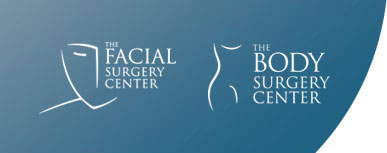Recovering from facial surgery can feel overwhelming, but with the right approach, you can speed up healing and minimize discomfort. Here’s a detailed guide on how to ensure a smoother recovery post-surgery and achieve the best possible outcome.
1. Follow Your Surgeon’s Post-Op Instructions Thoroughly
The most critical step in recovery is strictly following your surgeon’s instructions. After surgery, you’ll receive a personalized recovery plan with guidelines on medications, wound care, and activity limitations. These are designed to minimize the risk of complications, such as infection or delayed healing. Be diligent in taking prescribed medications as directed, and follow any specific wound care protocols to keep your incision clean and reduce the risk of scarring.
- Tip: Keep a list of your post-surgery guidelines handy and set reminders for medication times to stay on track.
2. Prioritize Rest and Elevate Your Head
Rest is essential for your body’s recovery, particularly in the days immediately following surgery. Avoid strenuous activities that may strain your body, as they can increase swelling and disrupt healing. Elevating your head while sleeping—using extra pillows or an adjustable bed—can help reduce swelling and improve circulation, which speeds up recovery.
- Tip: Consider setting up a comfortable recovery space before surgery with everything you’ll need within easy reach, so you can rest without interruptions.
3. Stay Hydrated and Eat Nutrient-Rich Foods
Your body needs additional nutrients to repair tissue and heal properly. Eating a balanced diet rich in vitamins and minerals can significantly aid the healing process. Include lean proteins (such as chicken, fish, or plant-based sources) to help tissue repair, and incorporate fruits and vegetables to support your immune system and reduce inflammation. Hydration is also key—drink plenty of water to help flush out toxins and keep your skin hydrated.
- Tip: Foods high in vitamin C, like oranges and bell peppers, promote collagen production, which is vital for skin healing.
4. Manage Swelling, Bruising, and Discomfort Effectively
Swelling and bruising are normal parts of the recovery process after facial surgery. Using cold compresses during the first 48 hours can reduce swelling and minimize bruising. Your surgeon may also recommend specific creams or ointments to reduce discomfort and promote skin healing. Avoid touching the surgical area to prevent irritation and potential infections.
- Tip: Limit your exposure to direct sunlight, as UV rays can worsen swelling and delay healing. If you must go outdoors, wear a wide-brimmed hat or use sunscreen on the surrounding areas (once approved by your surgeon).
5. Avoid Smoking, Alcohol, and Other Toxins
Smoking and alcohol consumption can significantly delay recovery. Smoking restricts blood flow, limiting the oxygen supply to healing tissues, while alcohol can interfere with medications and dehydrate the body. Both habits increase the likelihood of complications like infections and prolonged swelling. It’s important to refrain from smoking and drinking throughout the recovery process to allow your body to heal efficiently.
- Tip: If you smoke, consider asking your surgeon for resources to help you quit before surgery, as it can improve your recovery experience.
6. Stay Active, But Take It Slow
While strenuous activities are off-limits during the early stages of recovery, light movement such as short, gentle walks can promote circulation and reduce the risk of blood clots. Listen to your body and gradually increase your activity level as your surgeon advises. Avoid heavy lifting, bending, or sudden movements that could strain your healing tissue.
- Tip: Ask your surgeon when it’s safe to resume normal exercise routines and hobbies. Following these timelines is essential to avoid complications.
7. Monitor for Signs of Complications
It’s essential to stay alert for any signs that may indicate complications, such as unusual swelling, excessive pain, discharge from the incision site, or a fever. If any of these symptoms occur, contact your surgeon immediately for guidance. Early intervention can prevent more serious issues from developing.
- Tip: Keep track of your recovery in a journal, noting any symptoms or changes, so you can provide detailed information to your surgeon during follow-ups.
The Facial Surgery Center Cares About Your Recovery
At The Facial Surgery Center, your recovery is our top priority. We are committed to ensuring your post-surgery experience is as smooth and comfortable as possible. Our team is here to support you every step of the way, so you can heal confidently and feel like your best self. Remember, taking care of your body post-surgery is crucial to achieving the best results. If you have any questions or concerns, don’t hesitate to reach out—we’re always here to help.





